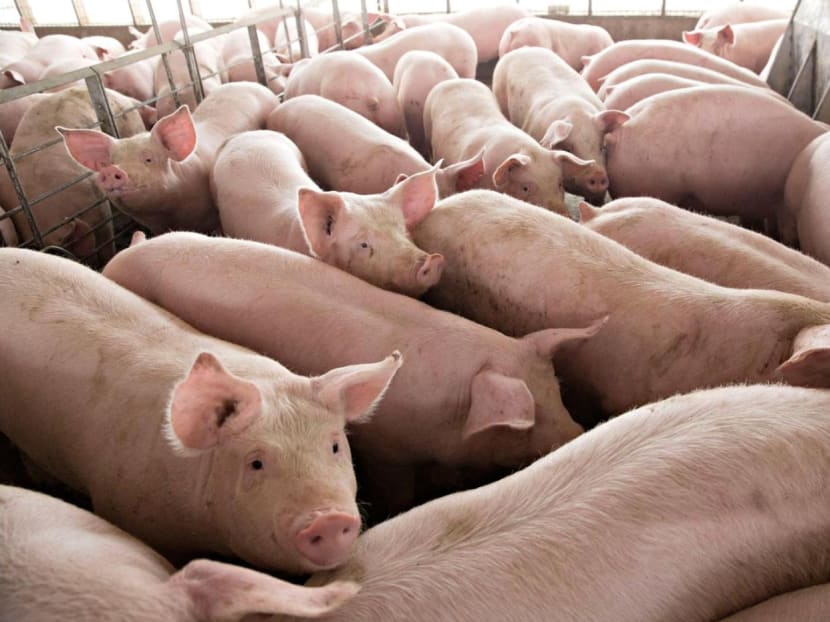Gene editing: Chinese scientists bring safer pig-to-human organ transplants one step closer to reality
HONG KONG — A team led by Chinese researchers say they have succeeding in producing genetically modified pigs with cells that are more compatible with the human immune system, paving the way for safe and effective organ transplants from animals to humans.
HONG KONG — A team led by Chinese researchers say they have succeeding in producing genetically modified pigs with cells that are more compatible with the human immune system, paving the way for safe and effective organ transplants from animals to humans.
In a study published Monday (Sept 21) in the Nature Biomedical Engineering journal, the researchers said they used CRISPR – Cas9 and a combination of other genetic technologies to inactivate porcine endogenous retroviruses (PERVs), a group of viruses that could be dangerous to humans, while also enhancing the pigs’ immunological and blood-coagulation compatibility with humans, which could reduce the risk of rejection by organ recipients.
The engineered pigs exhibited normal physiology, fertility and transmission of the edited genes to their offspring, according to the paper.
Transplants from pigs have long been investigated as a solution to the global shortage of human organs for patients with organ failure, for reasons such as the size of their organs — similar enough to those of humans — and their relatively short maturity period of about six months.
The risks of organ rejection due to the biological incompatibility of pig organs with human bodies and of transmitting PERVs have limited the clinical applicability of such transplants, but advancements in gene-editing technology have given researchers new hope.
In 2018, scientists in Munich achieved a milestone in the field when they transplanted genetically modified pig hearts into 14 baboons and two of the recipients survived more than six months, the longest any animal has lived with a heart from another species.
The latest study by the team led by scientists from Chinese biotech firm Qihan Bio combines two earlier advancements: In 2017, the team showed the use of gene-editing technology to inactivate PERVs in pigs, and the next year they published a separate study that used similar techniques to make pig organs more immunologically compatible with human beings.
In vitro tests of cells from the latest batch of engineered pigs — with both inactivated PERVs and enhanced immunological and blood-coagulation compatibility with humans — showed that they are resistant to complications including rejection by human bodies and cell-mediated damage.
“The extensive genome engineering of pigs for greater compatibility with the human immune system may eventually enable safe and effective porcine xenotransplantation,” the authors wrote in the study.
Xenotransplantation involves the transplantation of the cells, tissues or organs from one species to another.
Dr George Church, one of the authors from Harvard Medical School and a co-founder of Hangzhou-based Qihan Bio, was quoted by Chinese news agency Xinhua as saying that if the technology used can be further verified in future research, it could help alleviate the global shortage of human organs to a large extent.
Dr Luhan Yang, the corresponding author of the study and chief executive of Qihan Bio, also reportedly told Xinhua that the team is currently testing the safety and efficacy of transplanting organs from the gene-edited pigs into primates.
Aside from scientists from Qihan Bio and Harvard, researchers from Yunnan Agricultural University in southern China, eastern China’s Zhejiang University, Cambridge, Massachusetts-based biotech firm eGenesis, Massachusetts General Hospital and Pompeu Fabra University in Barcelona, Spain also contributed to the study. SOUTH CHINA MORNING POST










